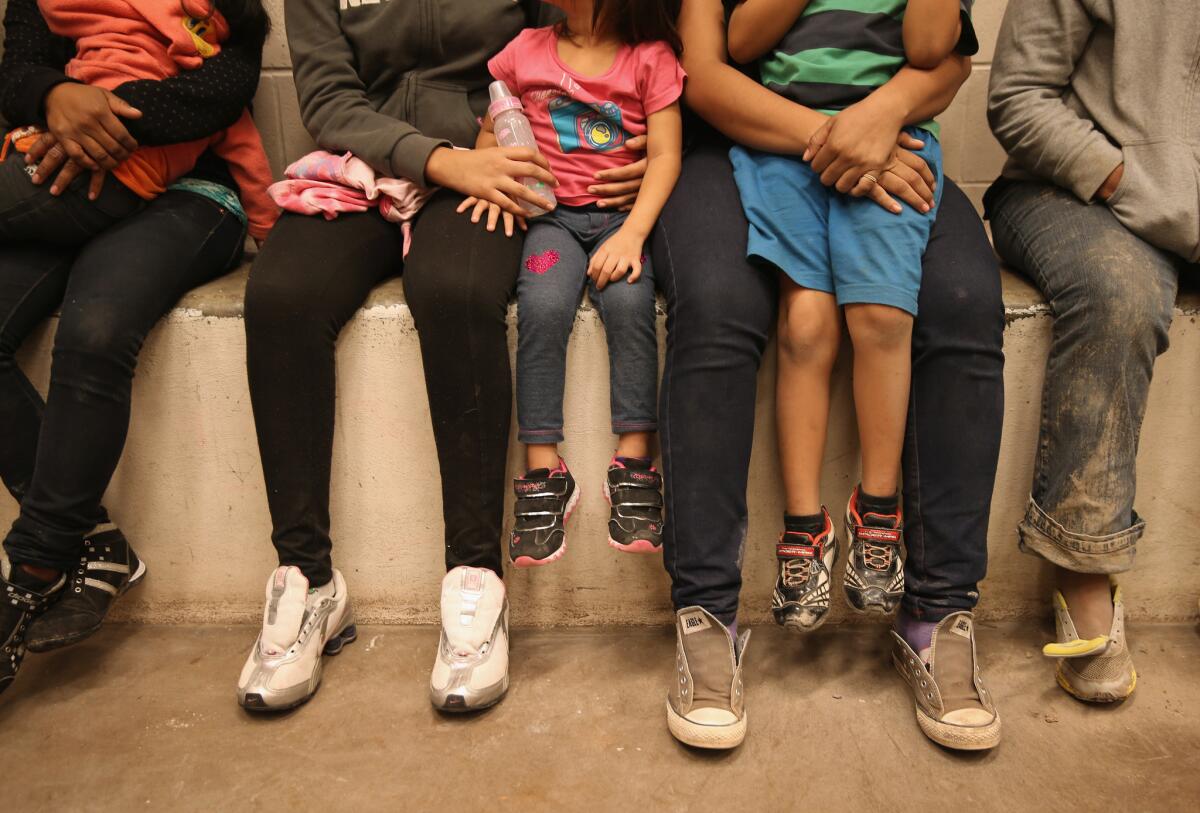Court upholds ruling that children held at border must have adequate food, bedding, sanitation

- Share via
SAN FRANCISCO — In a case that dramatized the plight of children detained at the border, a federal appeals court Thursday upheld an order requiring immigration authorities to provide minors with adequate food, water, bedding, toothbrushes and soap.
A three-judge panel of the 9th U.S. Circuit Court of Appeals rejected an appeal by the Trump administration to an order by a Los Angeles federal judge who found the government was violating a 1997 settlement. The settlement requires the government to provide detained minors with safe and sanitary conditions.
U.S. District Judge Dolly M. Gee issued the order in 2017 after finding that children in U.S. Customs and Border Protection custody did not have adequate food, clean water or basic hygiene items and were held in conditions that deprived them of sleep.
The settlement, known as the Flores agreement, required the children be given safe and sanitary quarters.
The government appealed, arguing that the order changed the settlement agreement. The original settlement said nothing about allowing children to sleep or wash themselves with soap, the federal government said.
The 9th Circuit disagreed, saying the enumerated items ordered by the judge fell under the settlement’s requirement that children be kept in safe and sanitary conditions. Because Gee’s order did not modify the settlement, there was no basis for appeal, the court said.
“Assuring that children eat enough edible food, drink clean water, are housed in hygienic facilities with sanitary bathrooms, have soap and toothpaste, and are not sleep-deprived are without doubt essential to the children’s safety,” wrote Judge Marsha S. Berzon, a Clinton appointee.
The case stirred nationwide outrage in June when a video of the 9th Circuit hearing on it went viral.
During the hearing, 9th Circuit Judge A. Wallace Tashima, a Clinton appointee, appeared incredulous that a lawyer for the federal government would not quickly concede that having soap and toothbrushes was a necessary requirement for sanitary conditions.
Gee issued the order after finding minors were “not receiving hot, edible or a sufficient number of meals during a given day”; lacked clean drinking water, clean bedding, toothbrushes, soap and towels; and endured “sleep deprivation” as a result of cold temperatures, overcrowding, lack of proper bedding and constant lighting.
The case stemmed from a class-action lawsuit filed by lawyers representing minors at the border. The settlement reached in the case took the form of a consent decree in 1997.
Last year, Gee appointed an independent monitor to examine the conditions at Customs and Border Protection detention facilities along the border in the Rio Grande Valley in Texas.
Attorneys who had visited Border Patrol stations, ports of entry and family detention centers filed a scathing report in July 2018, describing inhumane conditions there.
The report contained interviews with detainees who described sleeping on concrete, receiving only three mattresses for 18 people, using toilets without doors and without soap or paper towels, eating frozen sandwiches and being held in freezing cells.
More to Read
Sign up for Essential California
The most important California stories and recommendations in your inbox every morning.
You may occasionally receive promotional content from the Los Angeles Times.











